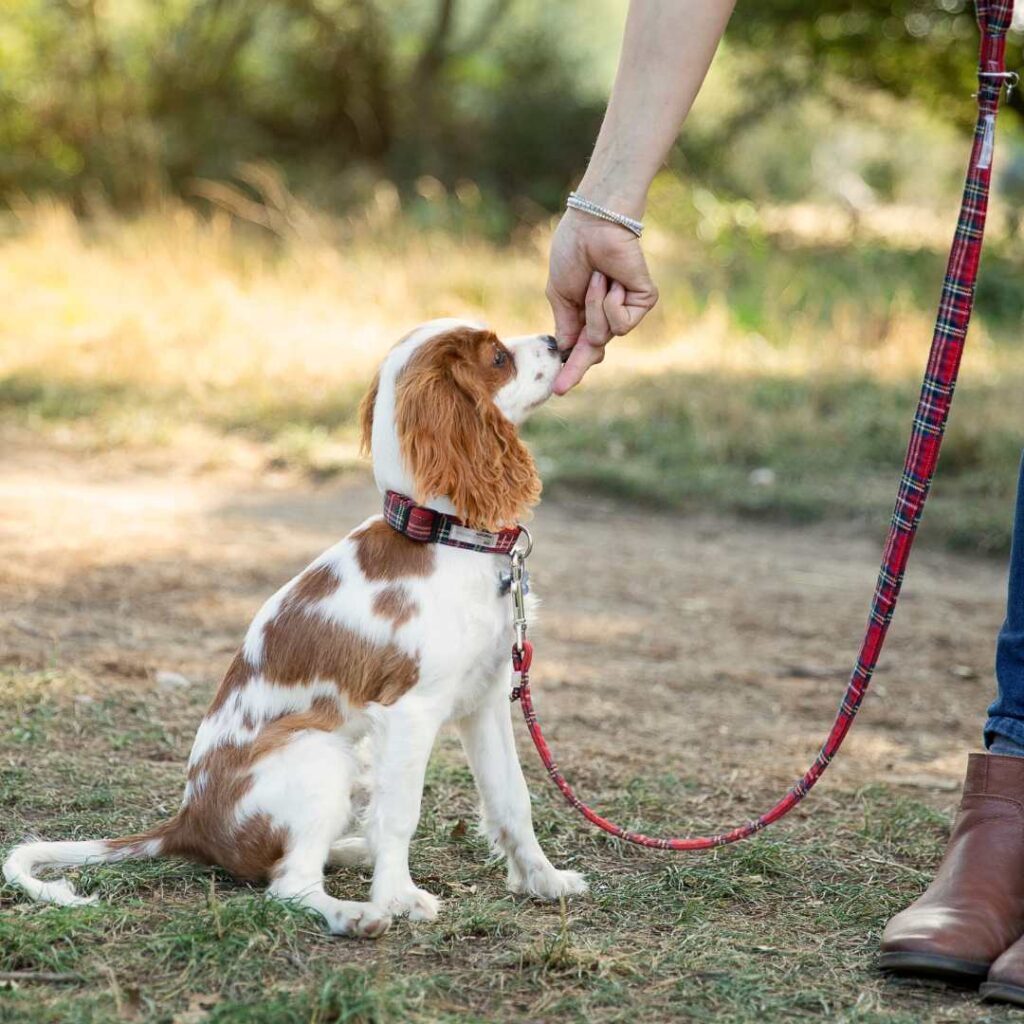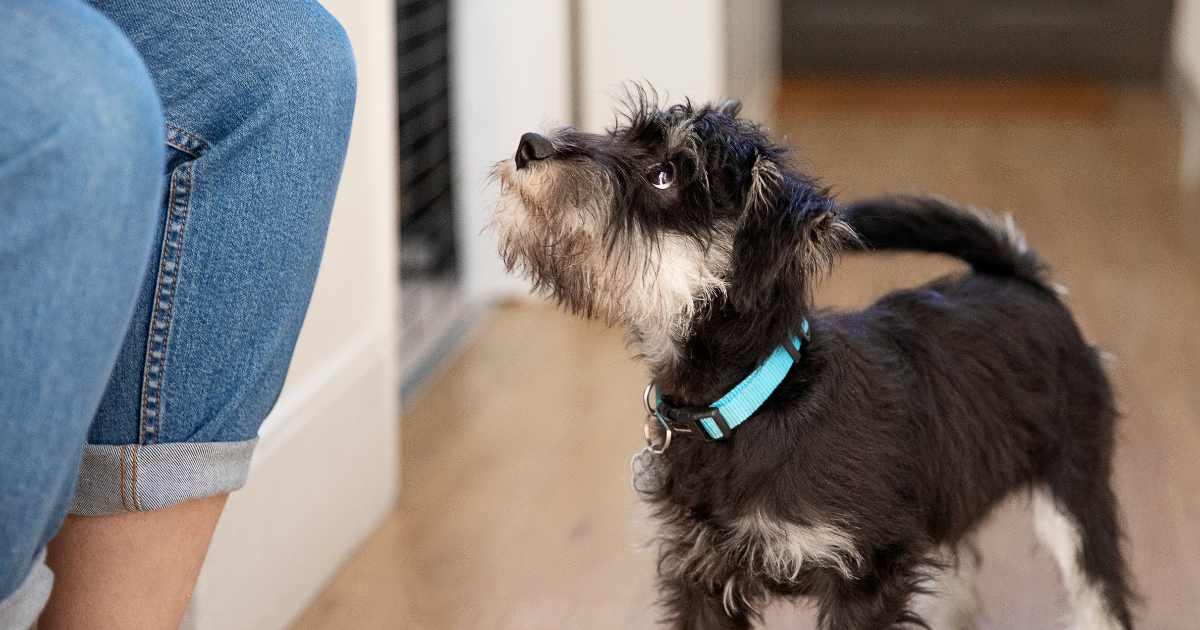There’s no doubt bringing up a puppy is hard work. From toilet and sleep training, to learning life skills and socialisation – there’s a lot to do! As lovely as puppyhood is, most people breathe a sigh of relief as their pup starts maturing into an adult. But that can be short-lived when they reach the teenage phase… Just like humans, there’s an adolescence period in dogs which can bring new challenges for you both.
What is adolescence in dogs?
Canine adolescence is a period many owners don’t anticipate. We often think of dogs as either a puppy or an adult, and forget there’s actually a teenage phase inbetween.
Sadly, there’s a reason the most common age for dogs being given to rescue centres for rehoming is between 6-18 months old. Canine adolescence can be a tricky time, especially if you’re not prepared for it.
Your dog is bigger and stronger. While they’re always adorable, it becomes harder to overlook as many things as you might have done when they were just a puppy who didn’t know any better. It’s easy to think your dog has become an uncontrollable teenage hooligan and struggle.
But you’re not alone, and there are things you can do to help.
Is my dog’s behaviour normal?
It’s important to remember adolescence in dogs happens to them all. The process and their behaviour is totally natural, and again, like humans, looks different in every dog.
It’s not your dog being ‘bad’, ‘stubborn’ or ‘dominant’ – this time is as hard for them as it is for you. They’re navigating changes in their bodies and brains, and they need your understanding and guidance more than ever.
What behaviour changes should I expect?
As a result of this developmental period, your adorable puppy is likely to experience some, or all, of the following. And this is likely to last anywhere between three to 12 months depending on their breed:
- Ignoring you – especially with distractions
- ‘Forgetting’ cues they’ve responded to in the past (especially recall)
- Running off to see other dogs they would’ve ignored before
- Being more pushy or rude with other dogs
- Totally avoiding other dogs (it can go either way depending on their personality)
- Being more interested in humans they don’t know well/at all, than in you
- Training sessions going wrong or not to plan
- Lack of ability to concentrate/focus
- Behaving fearfully towards things they’ve never had an issue with in the past
- More likely to react/bark/growl
- More sensitive/needy/cuddly
- Toilet training failures
- Excessive chewing and gnawing
- Rough mouthing/play biting
- Hyperactivity
Why does it happen?
Adolescence is the period between sexual maturity and social maturity. It can happen between tha ages of six months to two years depending on breed. This is because larger breeds take longer to develop. Another way of looking at it is that it’s a time when their hormones are running way ahead of their brains – pretty much like human teenagers! A young brain, with poor decision-making abilities, in an adult body.
Things you’ve taught them may seem to fall out of their minds, they appear to forget even the simplest things. At other times, the puppy who would hang on your every word and movement seems not to notice your existence!
Their brain is flooded with hormones and they’re starting to look at the world through the eyes of an independent adult. This includes reassessing their behaviour strategies. Up until now, they would’ve relied on their parent or caregiver to assess and deal with tricky situations – or at least give them guidance on whether it’s safe or dangerous. Now they have to learn to do that on their own. Which means re-thinking everything – even sometimes the things that’ve already been a part of their life up until now.

So what should I do?
It’s important you give your puppy time to do this positively and in their own time. The same way you did when you were socialising and building habits with them as a tiny puppy. There’s this idea a teenage dog is being silly and people will drag them past something that’s worrying them because they’ve seen it before. But this might be the first time they’re seeing it during their adolescence, so they need time to re-evaluate.
To survive, an adult has to make snap decisions on what’s safe and what’s dangerous. So be aware single-event learning can occur at this time – meaning a long lasting fear can be produced from one exposure to a negative event, even if all previous and subsequent exposures have been neutral or even positive. This is because adolescence coincides with another fear period in dogs, which all combine to produce the same effect. So you may see your puppy behaving fearfully or reacting to things they’ve taken in their stride in the past.
It’s also the time other dogs start to treat them differently, as they lose the ‘puppy privileges’ they enjoyed. This means they have to rethink their social skills at a time when their hormones are raging. Did you know an adolescent male dog has testosterone levels around five times that of an adult dog? This can lead to competitiveness and even aggression – especially if the other dog doesn’t like this teenage pushiness!
Each individual dog will behave differently in adolescence and their usual behaviours and personality can seem to be exaggerated. Puppies who were a little reserved can also become very shy, while the bold ones can become overly confident.
How to survive your dog’s adolescence
- Don’t think your teenager is being difficult. These hormonal changes are just as difficult to navigate for them and they need your guidance. This isn’t a time for punishment or heavy-handedness, which will break down trust at a time they need it most.
- Keep training and working with your dog (especially on recall). Don’t lose your patience if they’re not as focused as they were or seem to have forgotten everything they’ve learnt. Go back to the beginning with every exercise and use even more rewards, or higher value rewards – as teenagers get frustrated and/or lose focus easily.
- Keep social interactions positive and try not to let your dog encounter antisocial or aggressive dogs. This is a time when these encounters can shape the way your adult dog interacts with those around them. This might mean you keep your dog on a long line whenever you’re around other people or dogs. This will help recall too!
- Only let your dog play with dogs they know and get on well with. And supervise all play to make sure it isn’t getting too rough or one-sided. They need positive social encounters at this time.
- Be prepared for them to be worried or fearful around things or situations they took in their stride before. They’re reassessing everything with the eyes of an adult, so be sensitive, just like when they were a puppy.
- Talk to a behaviourist. If you’re worried about your dog’s behaviour, talk to a behaviourist who can help you get through their adolescence.
The good news is adolescence is something your puppy will grow out of. And if you manage this time sensitively, with understanding and quiet guidance, they’ll come out the other side as the dog of your dreams – despite your nightmares!

